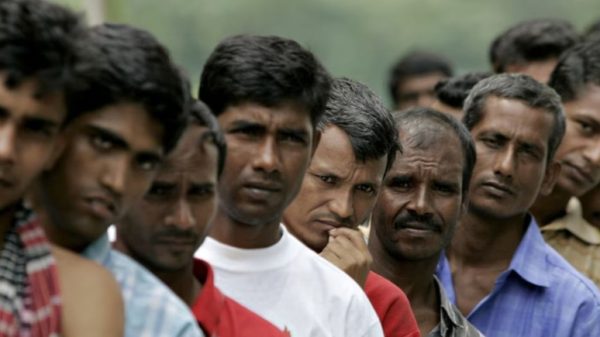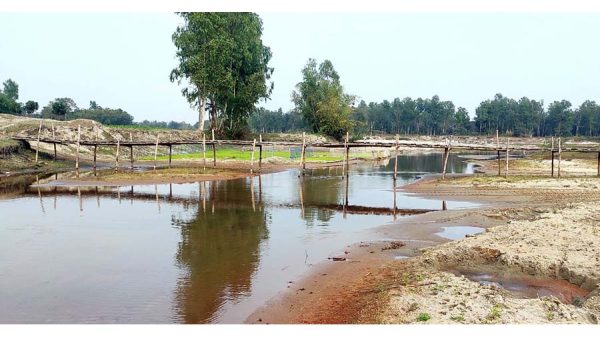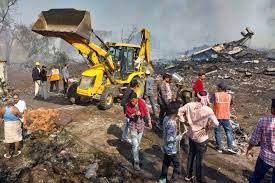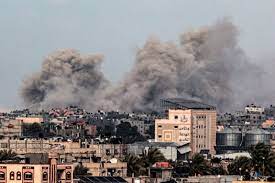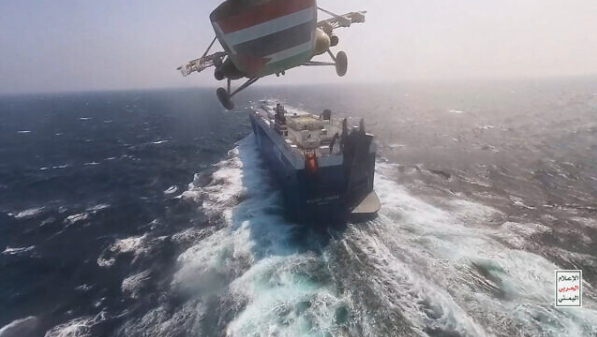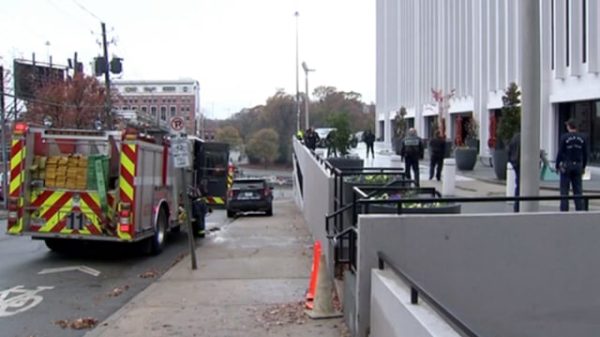DHAKA, May 15 (Net) — A powerful tropical cyclone flooded streets, blew off roofs and severed communications in western Myanmar on Sunday after thousands of people had crammed into monaster-ies, schools and other sturdy shelters in one of Asia’s least developed countries.
At least three deaths were reported in Myanmar, and several injuries were reported in neighboring Bang-ladesh, which was spared the predicted direct hit.
Cyclone Mocha made landfall in Myanmar’s Rakhine state near Sittwe township in the afternoon with winds blowing up to 209 kilometers (130 miles) per hour, Myanmar’s Meteorological Department said. By Monday morning, it was downgraded from its severe status and was steadily weakening over land, according to the India Meteorological Department.
The extent of the damage was not immediately clear. High winds crumpled cell phone towers during the day, cutting off communications. And independent information is hard to gather under Myanmar’s mili-tary-run government.
In videos collected by local media before communications were lost, deep water raced through streets while wind lashed trees and pulled boards off roofs. Rakhine-based media reported streets were flooded and people were trapped in homes in low-lying areas.
Myanmar’s military information office said the storm had damaged houses, electrical transformers, cell phone towers, boats and lampposts in Sittwe, Kyaukpyu, and Gwa townships. It said roofs were torn off buildings on the Coco Islands, about 425 kilometers (264 miles) southwest of the country’s largest city, Yangon.
More than 4,000 of Sittwe’s 300,000 residents were evacuated to other cities and more than 20,000 peo-ple were sheltering in sturdy buildings such as monasteries, pagodas and schools on the city’s highlands, said Tin Nyein Oo, who is volunteering in shelters in Sittwe.
Lin Lin, the chairman of a local charitable foundation, said there was not enough food in the shelters in Sittwe after more people arrived than expected.
Titon Mitra, the U.N. Development Program representative in Myanmar, tweeted: “Mocha has made landfall. 2m people at risk. Damage and losses are expected to be extensive. We are ready to respond and will need unhindered access to all affected communities.”
Myanmar state television reported that the military government is preparing to send food, medicine and medical personnel to the storm-hit area. After battering Rakhine, the weakening cyclone was forecast to hit the northwestern state of Chin and the central regions on Monday.
At least three deaths were reported in Myanmar. A rescue team from eastern Shan state said on Facebook that they had recovered the bodies of a couple who were buried when a landslide hit their house in Tachileik township. Local media reported a man was crushed to death when a banyan tree fell on him in Pyin Oo Lwin township in the central Mandalay region.
Mocha largely spared the Bangladeshi city of Cox’s Bazar, which initially had been in the storm’s pre-dicted path. Authorities had evacuated hundreds of thousands of people before the cyclone veered east.
In May 2008, Cyclone Nargis hit Myanmar with a storm surge that devastated populated areas around the Irrawaddy River delta. At least 138,000 people died and tens of thousands of homes and other build-ings were washed away.
Roxy Mathew Koll, a climate scientist at the Indian Institute of Tropical Meteorology in Pune city, said cyclones in the Bay of Bengal are becoming more intense more quickly, in part because of climate change.
Climate scientists say cyclones can now retain their energy for many days. Cyclone Amphan in eastern India in 2020 continued to travel over land as a strong cyclone and caused extensive devastation.
“As long as oceans are warm and winds are favorable, cyclones will retain their intensity for a longer period,” Koll said.
Tropical cyclones, which are called hurricanes or typhoons in other regions, are among the world’s most devastating natural disasters when they hit densely populated coastal areas.






